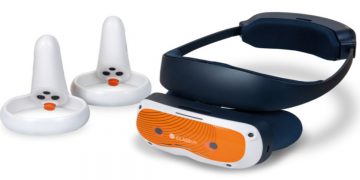Mathematics is often seen by many young students as a tough and intimidating subject, frequently causing anxiety and fear. This perception largely stems from traditional education methods that focus heavily on rote memorization, repetitive drills, and abstract calculations detached from real-life experiences. However, math is far more than a mere school subject; it is a powerful tool that helps us understand patterns, solve problems, and make sense of the world. The challenge for educators is transforming math from a source of worry into a realm of curiosity, creativity, and confidence. This is precisely the mission behind “Math Adventures,” a refreshing educational approach that turns mathematics learning into an exciting journey full of discovery.
Reimagining Maths as an Adventure
At its core, Math Adventures rejects the old-school notion of math as memorizing formulas and blindly following procedures. Instead, it treats math as a landscape of exploration, where children unlock mysteries, face puzzles, and embark on quests based on mathematical concepts. This experiential learning style allows children to engage directly with numbers, shapes, and patterns found in their everyday lives. For example, rather than merely learning addition by rote, students might be given a story-based challenge where they need to count and collect hidden treasures using addition puzzles. Through these immersive narratives, math becomes tangible and thrilling, inspiring learners to eagerly anticipate each lesson.
Importantly, this approach aligns closely with the principles set out in India’s National Education Policy (NEP) 2020, which emphasizes experiential, activity-based, and joyful learning, especially at the foundational levels. NEP 2020 advocates for making education relevant to local culture and real-life contexts, discouraging monotonous drills in favor of hands-on experiences that build conceptual understanding. For instance, classrooms under NEP guidelines might explore mathematics concepts by involving children in measuring volumes using water bottles or counting local fruits during harvest season, merging traditional knowledge with practical math skills.
Stories, Hands-On Play, and Mistakes as Stepping Stones
One of the defining features of Math Adventures is the use of storytelling as a powerful tool for teaching math. Children’s imaginations are captivated by narratives involving tasks such as building bridges by learning measurement or cracking secret codes through pattern recognition. These stories give purpose and context to abstract ideas, making them easier to grasp and remember.
In keeping with NEP 2020’s holistic learning emphasis, the method also embraces multisensory and hands-on learning. Children may physically manipulate objects like blocks, threads, or measuring jars, experiencing math concepts through touch and movement rather than passive listening. This sensory involvement deepens understanding and helps solidify mental models.
Equally crucial is the positive attitude toward mistakes. Math Adventures encourages children to view errors not as failures but as valuable clues that guide them to new strategies and solutions. This mindset builds resilience and shows learners that exploration, trial, and error are natural parts of mastering mathematics. NEP 2020 too highlights the importance of creating environments where children can experiment freely without fear of reprimand, fostering robust cognitive and emotional growth.
Connecting Math to Culture and Community
Math Adventures recognizes the importance of making math learning culturally relevant and connected to children’s immediate surroundings. Drawing from local games, festivals, and everyday activities embraces students’ backgrounds and enhances accessibility. For example, children might explore counting through traditional Indian games or recognize shapes and patterns in local art forms, making math rich with familiar references.
NEP 2020 strongly advocates this culturally responsive pedagogy, encouraging educators to integrate regional languages, customs, and community resources into their teaching. Such integration not only preserves cultural heritage but also stimulates intrinsic interest and pride in learning.
Collaborative Exploration and Real-World Application
Math Adventures promotes collaborative learning, where students work together to solve puzzles, share ideas, and explain reasoning. This social element encourages communication, empathy, and teamwork—skills essential far beyond the math classroom.
Practical activities might involve students role-playing as market vendors calculating prices or working together on measurement tasks using playground equipment. These immersive, real-world applications help children see the relevance of math in daily life, boosting motivation and confidence.
The NEP 2020 framework supports these collaborative and contextual learning experiences, emphasizing project-based tasks and community involvement to prepare students with 21st-century skills such as problem-solving and adaptability.
Inspiring a Lifelong Love for Math
Teachers and schools adopting the Math Adventures approach in line with NEP 2020 report considerable improvements in student enthusiasm, reduced math anxiety, and stronger conceptual foundations. By shifting focus from speed and rote accuracy to understanding, creativity, and perseverance, children develop a fearless and joyful relationship with mathematics.
Math Adventures is more than just a teaching strategy—it is a philosophy that transforms how young learners experience math. By weaving storytelling, hands-on engagement, cultural relevance, and collaborative discovery into lessons, educators cultivate critical thinking, resilience, and a passion for lifelong learning. When math is presented not as a hurdle but as an inviting adventure abundant with surprises, it opens the door to endless possibilities for children’s intellectual and personal growth.
The journey to joyful and confident math learning truly begins when educators and learners alike embrace mathematics as an exciting adventure waiting to be explored.





























































